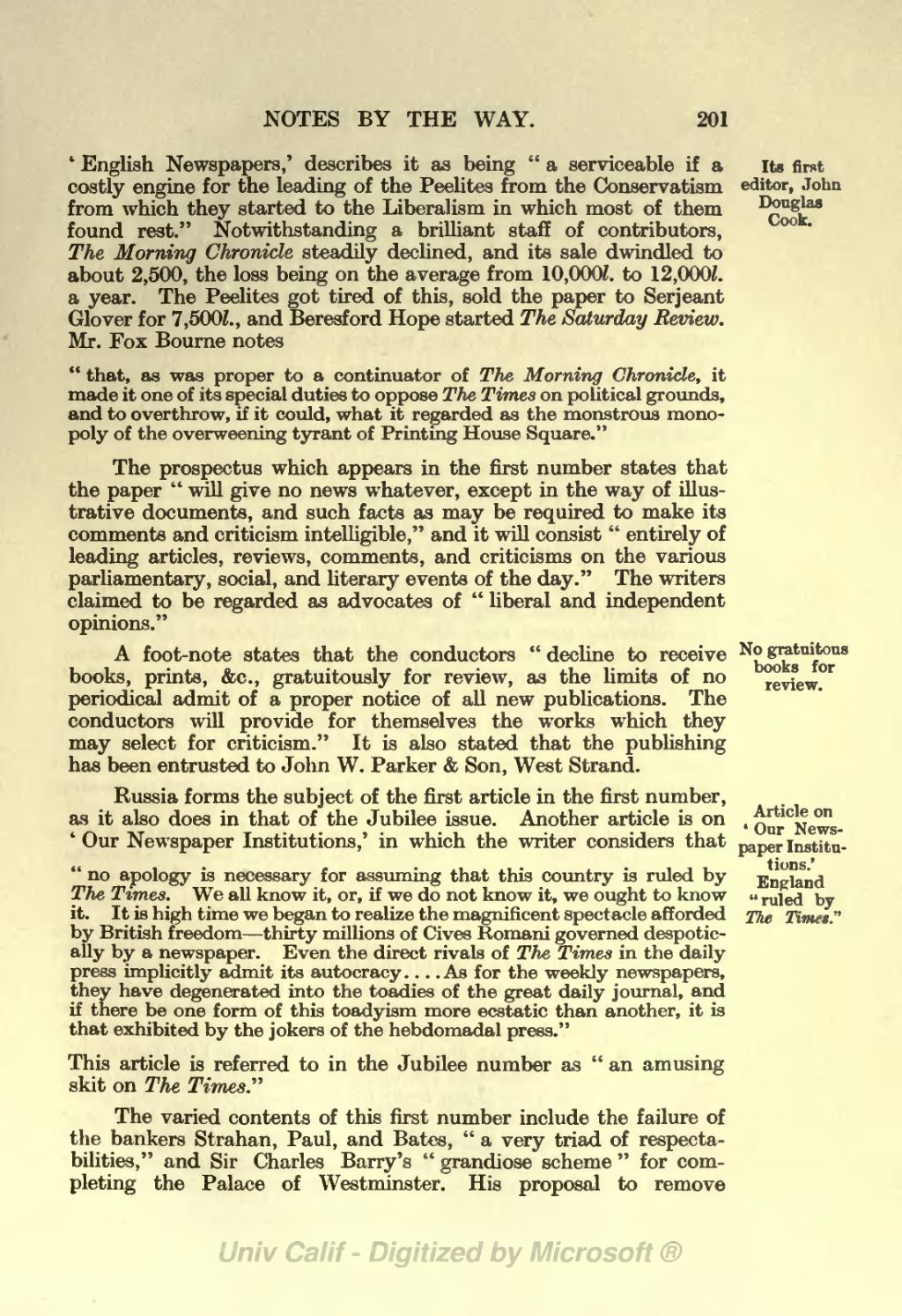NOTES BY THE WAY.
��201
��' English Newspapers,' describes it as being " a serviceable if a costly engine for the leading of the Peelites from the Conservatism from which they started to the Liberalism in which most of them found rest." Notwithstanding a brilliant staff of contributors, The Morning Chronicle, steadily declined, and its sale dwindled to about 2,500, the loss being on the average from 10,000?. to 12,000?. a year. The Peelites got tired of this, sold the paper to Serjeant Glover for 7,500?., and Beresford Hope started The Saturday Review. Mr. Fox Bourne notes
" that, as was proper to a continuator of The Morning Chronicle, it made it one of its special duties to oppose The Times on political grounds, and to overthrow, if it could, what it regarded as the monstrous mono- poly of the overweening tyrant of Printing House Square."
The prospectus which appears in the first number states that the paper " will give no news whatever, except in the way of illus- trative documents, and such facts as may be required to make its comments and criticism intelligible," and it will consist " entirely of leading articles, reviews, comments, and criticisms on the various parliamentary, social, and literary events of the day." The writers claimed to be regarded as advocates of " liberal and independent opinions."
A foot-note states that the conductors " decline to receive books, prints, &c., gratuitously for review, as the limits of no periodical admit of a proper notice of all new publications. The conductors will provide for themselves the works which they may select for criticism." It is also stated that the publishing has been entrusted to John W. Parker & Son, West Strand.
Russia forms the subject of the first article in the first number, as it also does in that of the Jubilee issue. Another article is on ' Our Newspaper Institutions,' in which the writer considers that
" no apology is necessary for assuming that this country is ruled by The Times. We all know it, or, if we do not know it, we ought to know it. It is high time we began to realize the magnificent spectacle afforded by British freedom thirty millions of Gives Roman! governed despotic- ally by a newspaper. Even the direct rivals of The Times in the daily press implicitly admit its autocracy. . . .As for the weekly newspapers, they have degenerated into the toadies of the great daily journal, and if there be one form of this toadyism more ecstatic than another, it is that exhibited by the jokers of the hebdomadal press."
This article is referred to in the Jubilee number as " an amusing skit on The Times."
The varied contents of this first number include the failure of the bankers Strahan, Paul, and Bates, " a very triad of respecta- bilities," and Sir Charles Barry's " grandiose scheme " for com- pleting the Palace of Westminster. His proposal to remove
��Its first
editor, John
Douglas
Cook.
��No gratuitous
books for
review.
��Article on ' Our News- paper Institu- tions.' England " ruled by The Times.
�� �
